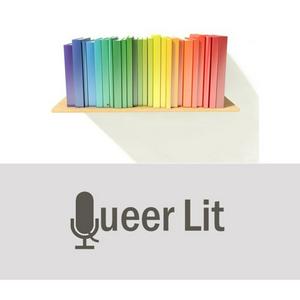What is queer food, you ask? Let’s find out! Alex Ketchum and Megan Elias tell me all about the connections between gender and food, cooking and sexuality, and recipes and community. The amazing book Queers at the Table is a product of the queer food conference Alex and Megan ran in 2024 (returning in 2026!) and consists of essays, stories, comics and endlessly inspiring reflections on queer cooking and intellectual inquiry. Lesbian chefs, feminist cafes, queer community cookouts – this episode has them all.
References:
Queers at the Table (Arsenal Pulp Press, 2025)
Alex Ketchum’s Ingredients for Revolution: A History of American Feminist Restaurants, Cafes, and Coffeehouses (Concordia UP, 2022)
https://press.library.concordia.ca/projects/ingredients-for-revolution (open access)
Megan Elias’ Food on the Page (Penn Press, 2017)
Queer Food Conference
https://www.queerfoodconference.com/
@queerfoodconference
Alex Ketchum’s How to Organize Inclusive Events and Conferences (Microcosm, 2026)
https://microcosmpublishing.com/catalog/books/63461
Alex Ketchum’s Digital Queers and High Tech Gays (MIT Press, 2027)
@dr.alexketchum
http://alexketchum.ca
Alex Ketchum’s Engage in Public Scholarship!: A Guidebook on Feminist and Accessible Communication (Concordia Uni Press, 2022)
https://press.library.concordia.ca/projects/engage-in-public-scholarship (open access)
https://www.justfeministtechandscholarshiplab.com/
Greggor Mattson
Prism Comics
Queer Food Foundation
The Female Glaze
@thefemaleglaze
The Nonbinarian Bookstore
https://thenonbinarian.gay/
Bishakh Som’s Spellbound
Cait McKinney’s Information Activism: A Queer History of Lesbian Media Technologies
The Ripped Bodice
Casey McQuiston’s The Pairing
Questions you should be able to respond to after listening:
How do Megan and Alex define queer food?
Megan thinks about what ‘not queer food’ might be and whether we would want to define this. What is your opinion? Is there ‘straight’ food?
How is gender connected to food? Were you surprised by anything we mention?
What connections do Megan and Alex draw between sexuality and food?
Alex and Megan speak a lot about community. Can you name two examples of how community makes food queer?
How might food be linked to queer knowledge production?


